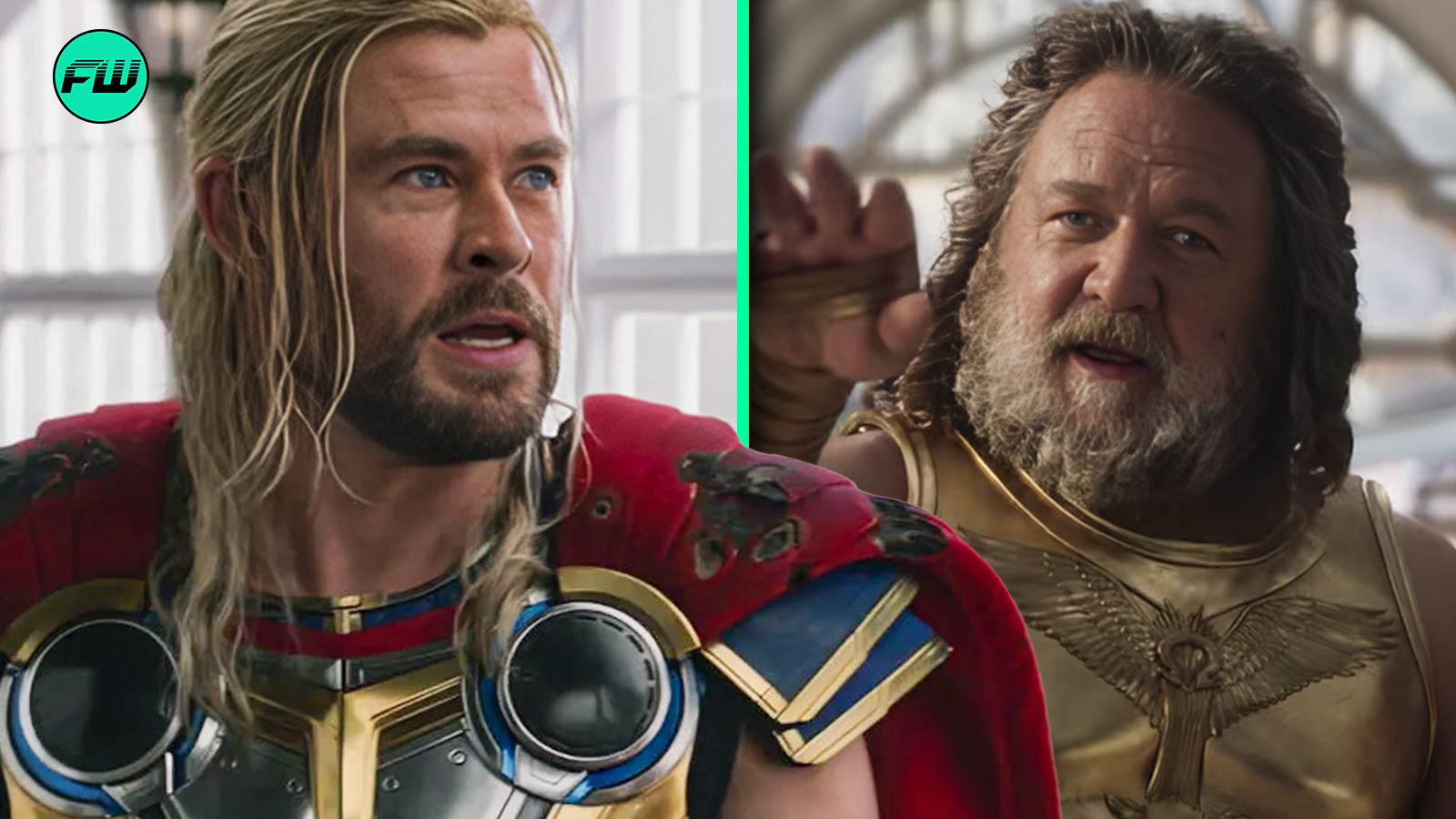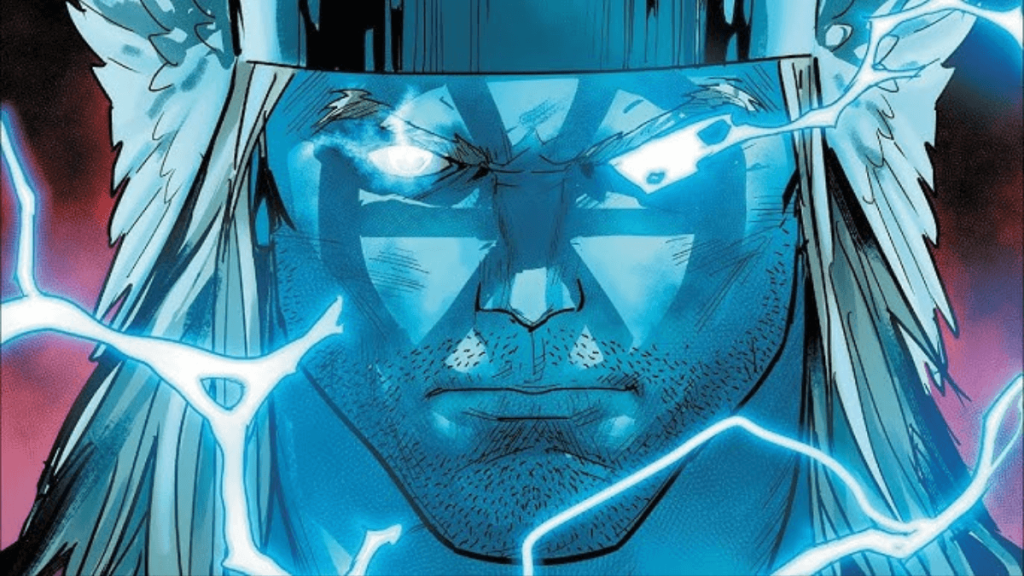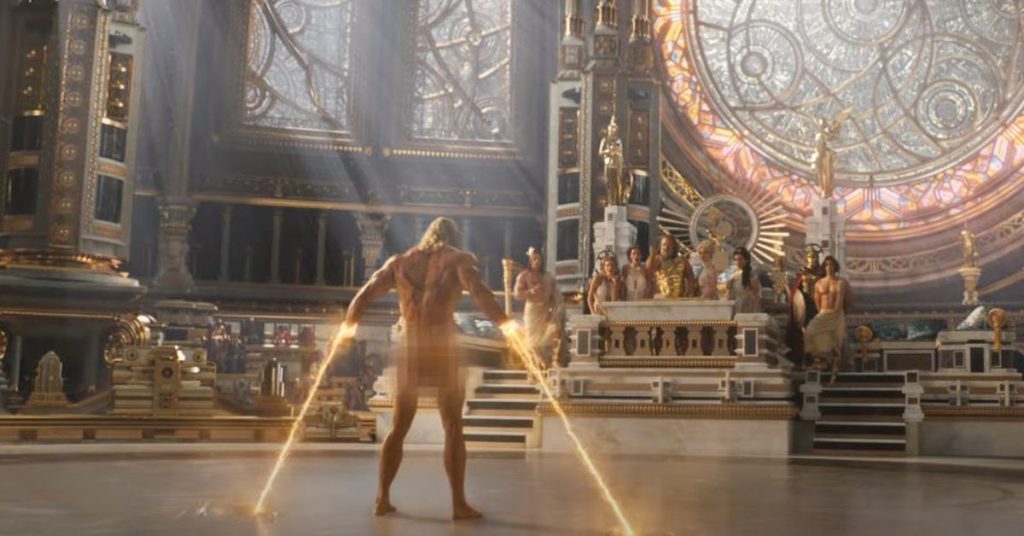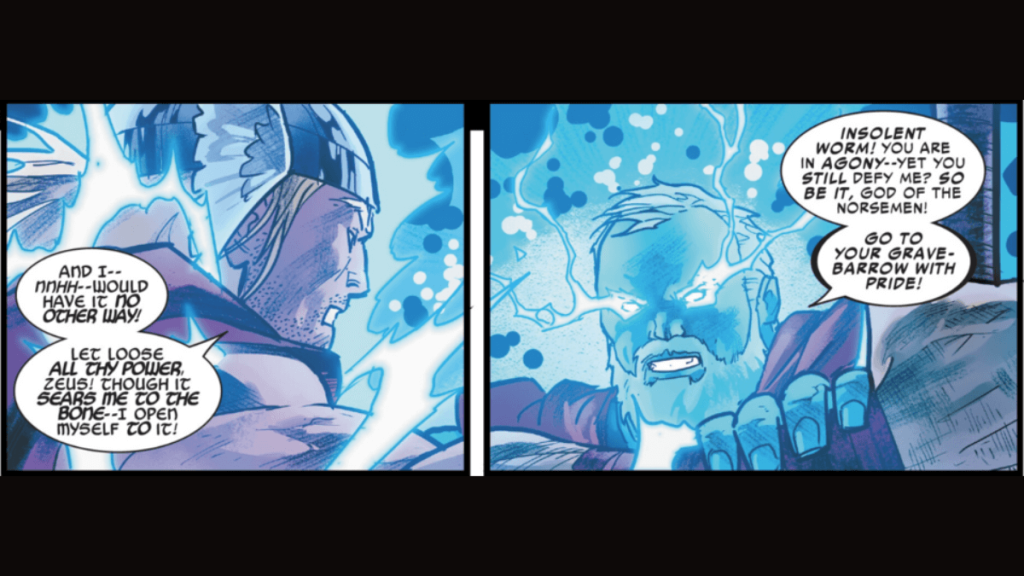Thor, the mighty Asgardian God of Thunder, has long been a central figure in the Marvel Cinematic Universe (MCU). Played by Chris Hemsworth, Thor has evolved from a brash warrior prince to a hero burdened with loss and responsibility. Yet, as iconic as Hemsworth’s portrayal has been, recent developments in the Marvel comics have sparked a debate that puts Taika Waititi’s Thor: Love and Thunder under scrutiny.

The latest installment in the comics, Immortal Thor, has redefined Thor’s powers and his place among the gods, particularly in his face-off against Zeus, the Skyfather of Olympus. This reimagining has left many fans wondering: Did Taika Waititi miss the mark in his depiction of these legendary figures?
Thor: Love and Thunder, released in 2022, was highly anticipated by fans who were eager to see the next chapter in Thor’s journey. The film brought back Hemsworth as Thor and introduced Russell Crowe as Zeus, the king of the Olympian gods. However, the depiction of Zeus in the film was far from what fans had expected.
Instead of the powerful and majestic deity known from mythology and the comics, Zeus was portrayed as a lewd, arrogant, and somewhat comical figure. His interactions with Thor were filled with humor, but the stakes never felt as high as they should have been. The film’s tone, which oscillated between comedy and drama, left many feeling that the weight of the story had been undermined.

The recently released Immortal Thor series, written by Al Ewing and illustrated by Jan Bazaldua, takes a different approach. The series has been a massive hit among comic book fans, particularly due to its portrayal of Thor as one of the most powerful beings in the Marvel Universe.
In this series, Thor, who has ascended to the title of All-Father of Asgard, faces off against a reborn Zeus in a battle that showcases the true might of these gods. The intensity and gravitas of this confrontation have made fans look back at Thor: Love and Thunder with a critical eye, questioning why the film failed to capture the epic nature of a Thor vs. Zeus battle.
In the comics, Zeus has traditionally been depicted as a being of immense power, on par with Odin and even Galactus. He was often a mentor and a figure of wisdom for Thor, someone the Asgardian could look up to. However, the Immortal Thor series flips this dynamic, placing Thor on an equal footing with Zeus, something that had never been fully realized in previous comics. This shift is significant as it marks Thor’s growth not just as a warrior but as a god who commands the respect of even the mightiest of deities.

The Immortal Thor series begins with Thor facing a new set of challenges as the All-Father, responsibilities that come with the title and the immense power that he now wields. The series builds up to a climactic battle between Thor and a reborn Zeus, who has returned more powerful and more aggressive than ever.
This Zeus is not the jovial, carefree figure seen in Thor: Love and Thunder but a fearsome god who embodies the might and wrath of Olympus. The battle between Thor and Zeus in the comics is nothing short of spectacular, with both gods unleashing their full power in a fight that shakes the very foundations of the Marvel Universe.
One of the most striking moments in this battle comes when Zeus, enraged by Thor’s defiance, hurls a lightning bolt at him. In a display of power that left fans in awe, Thor stops the bolt with a single word: “Turn.” This moment signifies Thor’s mastery over his godhood and his newfound status as a being who can stand toe-to-toe with the likes of Zeus. But the battle doesn’t stop there.
Zeus, realizing the threat Thor poses, summons the lightning inside Thor, hoping to overwhelm him with his own power. Instead, Thor absorbs the lightning, using it to fuel his own strength. This twist in the battle reveals that Thor has not only matched Zeus in power but has surpassed him, becoming a god who wields the combined might of both Odin and Zeus.
This portrayal of Thor as a near-omnipotent god has resonated with fans who feel that the MCU has, at times, downplayed the character’s true potential. The contrast between the Immortal Thor series and Thor: Love and Thunder is stark. In the film, Zeus is introduced in a scene that plays more for laughs than for drama.
His lecherous behavior and dismissive attitude towards Thor’s concerns about Gorr the God Butcher are a far cry from the Zeus of the comics, who is a formidable adversary. The film’s version of the Thor vs. Zeus conflict, where Thor impales Zeus with his own thunderbolt in a quick and somewhat anticlimactic battle, pales in comparison to the epic clash depicted in Immortal Thor.
The reception of Thor: Love and Thunder was mixed, with critics and audiences divided over the film’s tone and narrative choices. While some appreciated the humor and the continuation of Thor’s character arc, others felt that the film’s lighter moments undermined its more serious themes. The portrayal of Zeus, in particular, drew criticism for reducing a character who could have been a major antagonist to a caricature. Despite these critiques, the film was a commercial success, grossing $760.9 million worldwide. However, the success at the box office did little to quell the disappointment among fans who had hoped for a more serious and impactful portrayal of the gods.
The release of Immortal Thor has reignited these discussions, with many fans taking to social media to express their frustration with how Thor: Love and Thunder handled the Thor vs. Zeus storyline. The comparisons between the comic and the film are inevitable, and they highlight what some see as a missed opportunity by the MCU. One fan tweeted, “This is the same character MCU turned into a joke,” pointing out the disparity between the fearsome Zeus in the comics and the comedic version in the film. Others echoed this sentiment, praising the comic for giving Thor the epic battle with Zeus that they felt was lacking in the movie.

Taika Waititi, known for his unique blend of humor and heart, brought a fresh perspective to the Thor franchise with Thor: Ragnarok. However, his approach to Thor: Love and Thunder has sparked debate about whether the film’s comedic tone was appropriate for the story it was trying to tell.
The decision to depict Zeus as a humorous, almost buffoonish figure was likely intended to align with the film’s overall tone, but it came at the cost of undermining the gravity of the Thor vs Zeus conflict. In the wake of Immortal Thor, this choice seems even more perplexing, as the comics have demonstrated just how powerful and significant this battle could have been.
It’s worth noting that the MCU has often taken creative liberties with its source material, adapting characters and storylines to fit the cinematic universe’s overarching narrative. However, in this case, the liberties taken with Zeus’s character seem to have backfired, leaving fans longing for a portrayal that does justice to the god’s mythic stature. The Immortal Thor series serves as a reminder of the character’s potential and the kinds of stories that can be told when the full scope of his powers is explored.
As the MCU continues to expand, it will be interesting to see how it addresses the feedback from fans and whether future installments will take a different approach to characters like Thor and Zeus. The success of Immortal Thor suggests that there is a strong appetite for stories that delve into the more serious and epic aspects of these characters’ mythologies. Whether this will influence the direction of future Thor films remains to be seen, but the conversation sparked by Immortal Thor has undoubtedly left its mark on the fan community.
In conclusion, Immortal Thor has shown just how powerful and compelling Thor’s character can be when given the right treatment. The comic’s portrayal of the Thor vs. Zeus battle has set a new standard for what fans expect from these mythic confrontations. Meanwhile, Thor: Love and Thunder serves as a cautionary tale about the risks of prioritizing humor over the epic scale that characters like Thor and Zeus demand. As the debate continues, one thing is clear: Thor’s journey is far from over, and fans will be eagerly watching to see where it leads next.
News
😎👌🔥 Northern Illinois HC Thomas Hammock’s Emotional Victory Over Notre Dame
In the realm of college football, victories are often celebrated with exuberance and fanfare. However, some wins resonate deeper, touching the very core of human emotion. One such moment unfolded recently when Northern Illinois University’s head coach, Thomas Hammock, led…
🧎♂️ John Elway’s Controversial Stance: Kneel During the Anthem and Face the Consequences
In a bold and highly controversial move, legendary NFL figure and former Denver Broncos coach, John Elway, has ignited a firestorm of debate with his firm declaration that kneeling during the national anthem will no longer be tolerated on his…
🏋🏽🔥💪🏼🎧 THE HEARTFELT TRIUMPH: Coach Thomas Hammock’s Emotional Victory Over Notre Dame
In the world of college football, few moments resonate as deeply as a historic victory, especially when it comes against a powerhouse like Notre Dame. This past Saturday, Northern Illinois University (NIU) achieved the unthinkable by defeating the Fighting Irish…
🤼 The Controversy of Nike and Colin Kaepernick: A Deep Dive into Harrison Butker’s Bold Stance
In the world of sports, few topics ignite as much passion and debate as the intersection of politics and athletics. Recently, NFL kicker Harrison Butker has made headlines with his outspoken criticism of Nike, a brand that has been synonymous…
💶 Harrison Butker’s Bold Stand: Turning Down $25 Million from Nike
Harrison Butker, the star kicker for the Kansas City Chiefs, has made headlines for his audacious rejection of a staggering $25 million partnership with Nike. His bold statement, “Not even $1 billion could save their woke brand!” has sparked both…
🙀 Tua Tagovailoa’s Latest Concussion Scare: A Deep Dive into the Incident and Its Implications
In the world of professional football, injuries are an unfortunate reality, but few are as alarming as those that involve head trauma. The latest incident involving Miami Dolphins quarterback Tua Tagovailoa during a Thursday Night Football game against the Buffalo…
End of content
No more pages to load











